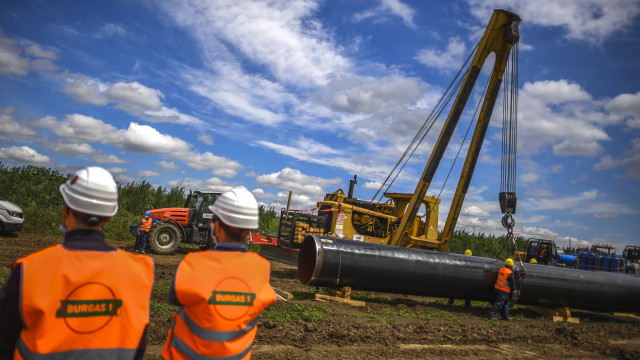The European Bank for Reconstruction and Development (EBRD) invested a record €846m in Serbia last year, nearly €200m more than in 2022 and well above the previous all-time high of €679m in 2020 , the press service of the financial institution announced, reported BGNES.
Matteo Colangeli, EBRD Regional Director for the Western Balkans, said: "We are very proud of the results we achieved in Serbia last year, securing record investment and support for the economy. For the first time, Serbia is among the EBRD's top five markets , which is all the more remarkable given the size of its economy. We have funded strong projects in the energy sector, infrastructure, innovation, attracting foreign direct investment and supporting small and medium-sized enterprises. This has happened alongside expanding our presence on the ground, such as our regional center in Belgrade has grown to over 60 people."
In 2023, the bank financed 28 projects in Serbia, with a strong emphasis on environmental transition, digital progress and economic inclusion. During the year, the Bank's new strategy for the country until 2028 was also approved, which has three main priorities: accelerating the transition to green energy in Serbia; increasing private sector competitiveness, productivity and access to finance; and financing sustainable infrastructure and strengthening regional connectivity.
Energy took center stage, with a €300 million loan to the state-owned company EPS, as well as a significant package of technical assistance to support reforms in the company and the sector as a whole. The EBRD also played a key role in the preparation and conduct of the country's first auction for wind and solar energy - the first of a three-year plan to market contracts for 1,300 MW of renewable energy.
During the year, good results were also achieved in the field of infrastructure. The bank invested in telecommunications towers and continued to finance the rail sector with a loan to Srbija Voz, the national rail passenger operator. It also continued to expand its climate resilience and irrigation program. For the first time, the EBRD also invested in innovation-supporting infrastructure, with a €80m loan for the science and technology parks in Niš, Čačak and Kruševac and the Bio4 campus in Belgrade.
The bank has been extremely active in the private sector, financing larger foreign direct investments such as BIG retail parks and supporting local SMEs with more than €300 million in loans and trade finance provided through partner banks. The EBRD also continued to expand its activities to promote skills training, including through its advisory program for SMEs and start-ups.
Serbia joined the EBRD in 2001. To date, the bank has invested over 8.8 billion euros in the country through 347 projects, mostly in the private sector. /BGNES
The EBRD has invested a record €846 million in Serbia in 2023






.jpg)
